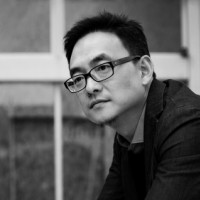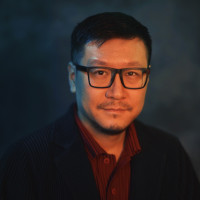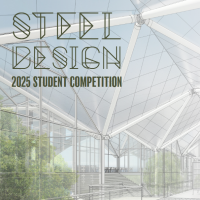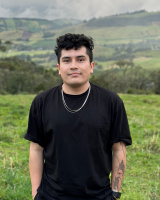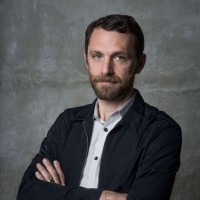Led by Dr. Bess Krietemeyer, School of Architecture assistant professor and a Syracuse Center of Excellence for Environmental and Energy Systems (SyracuseCoE) faculty research fellow, the Syracuse University team will partner with cocoon construct, co. (CC) and tkFabricate LLC to develop energy-efficiency retrofits for homes in cold/very cold climates.
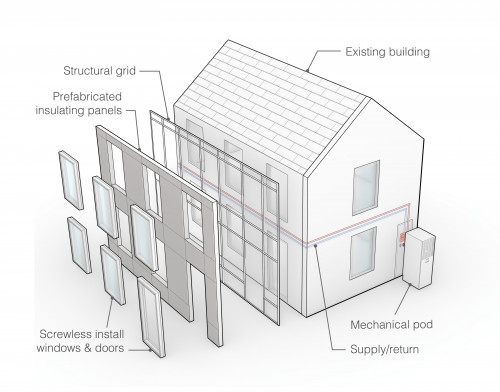
“We’ve created an incredible interdisciplinary team with extensive experience in research, design, fabrication, commercialization, implementation and construction,” says Krietemeyer. “This makes for a holistic approach that tackles some of the biggest challenges with deep energy retrofits, including cost, aesthetics and occupant comfort.”
Another unique element of the team’s approach is the formation of its Market and Implementation Collaborators advisory board, which will provide key stakeholder input throughout the project. Tammy Rosanio, associate director of partner programs at SyracuseCoE, was instrumental in assembling this advisory group of industry partners, which includes the Syracuse Housing Authority, Conifer Realty, Energiesprong, Upstate Parts & Supply and Taitem Engineering.
The Syracuse University team’s proposal was one of 29 from organizations across the U.S. to receive funding for pursuit of innovations that further the goals of BTO’s Advanced Building Construction with Energy-Efficient Technologies & Practices (ABC) Funding Opportunity (FOA), which supports research and development of solutions that can be applied to many segments of the building sector, including existing and new buildings, residential and commercial, and across multiple climate zones.
The FOA underpins the Advanced Building Construction Initiative, one of BTO’s principal efforts to unlock deeper energy savings in the U.S. residential and commercial building sector, which accounts for 40 percent of the nation’s total energy use—greater than that for either industry or transportation—and nearly 75 percent of its energy consumption.
The goal of the Syracuse University team’s proposed project is to develop a transformative solution for whole-building energy efficiency retrofits single-family attached residences in cold/very cold climate regions that are extendable to single-family detached and low-rise multifamily housing.
While retrofit products that could deliver energy and cost savings are currently available in the U.S. market, there are significant challenges with market fragmentation, project complexity and cost, disjointed workflows for design and implementation, disruption for residents during installation, and barriers to acceptance of the final product’s aesthetic appearance.
The team’s project addresses the critical need for innovation in integrated processes for design, analysis, fabrication, and installation to capture economies of scale, compress time and cost, and facilitate widespread acceptance and applicability. Their solution includes three key technical innovations: a prefabricated exterior building envelope retrofit wall system; an envelope-integrated, high efficiency HVAC system; and a design decision-making platform and retrofit protocol.
“The process will be highly integrative and iterative, as our design and testing of both the envelope and mechanical prototypes will inform each other’s development along the way,” says Krietemeyer. “This includes laboratory, field and model-based testing at multiple scales using Syracuse University’s Building Energy and Environmental Systems Laboratory (BEESL) and Building Envelope Systems Test Lab facilities.”
By leveraging the team’s expertise and prior work to address current challenges—including Syracuse University’s expertise in decision tools and high-efficiency mechanical innovations, CC’s innovations in patented envelope systems, and tkFabricate’s experience in integrated mechanical pod solutions for actual building projects—the team aims to find an overall approach that is affordable enough for public and private building owners to implement with a return on investment of 25 years and an expected 75 percent energy savings.
“I’m honored and thrilled to be leading this project as a faculty member of Syracuse University, where I’ve found tremendous support in research over the years,” says Krietemeyer. “In particular, I’ve learned a great deal from Chetna Chianese from the Office of Research, whose experience with DOE projects and proposal development has provided invaluable guidance from the start. I’m confident that our project team, with the support and resources at Syracuse University, will deliver outcomes that have big impacts across the region and country.”
The Syracuse University team’s project will be conducted over an 18-month period for Phase 1 of development and testing of their integrated solution.
To learn more about all of the projects selected to receive funding under the FOA, visit energy.gov/eere/buildings/articles/40-newly-selected-ventures-reimagine-abcs-building-construction-enhance.
